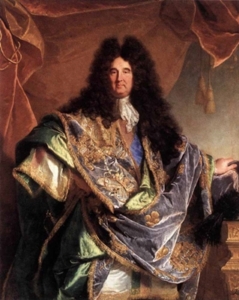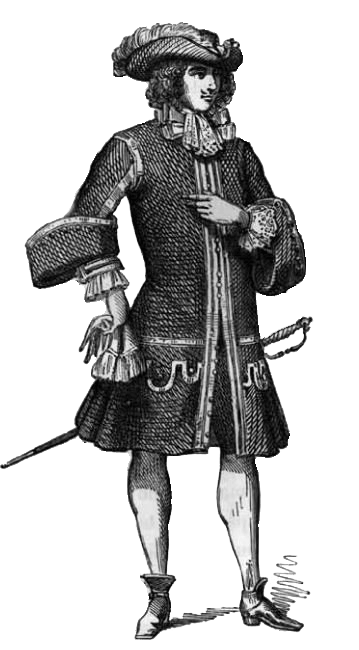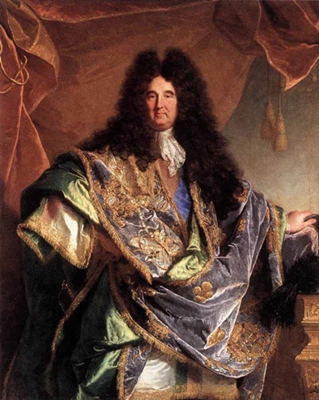Dangeau’s Diary, August 1690

5th. — On the receipt of the news of the death of the Prince of Orange, bonfires were lighted, which the King much disapproved of, but the magistrates could not restrain the people. (The Parisians did not just light bonfires, they had one big street party, with wine, food and music. The police had great difficulties to calm them.)
10th. – Camp of Offenbach. The courier sent by Monseigneur to the court, has returned; he had been dispatched to know if it was his Majesty’s pleasure, that the army should cross the Rhine; without which the supplies must be drawn from Alsace: the King has approved the plan of crossing the Rhine. Monseigneur was very glad to receive the King’s permission to cross the Rhine. He has ordered this evening, that the two battalions which were to join this army, viz. the second of Vermandois, and the second of the royal la Marine, should remain, the one at Landau and the other at Philipsbourg.
14th. – We are informed from Paris of the death of Madame de Beauvais. She had been first lady of the bed-chamber and favourite of the Queen mother. The King allowed her a considerable pension. (She was the one who introduced the teen Louis XIV into the art of love and bedsports, on behest of his mother.)
15th. — Monseigneur performed his devotions this morning; he is accustomed so to do every year on this holiday. Before dinner, he held a council with the Marshal, Monsieur de Saint Pouanges, and Monsieur de Chanlay, the three persons who generally assist at it; it has been determined to advance tomorrow to Fort Louis.
16th. — The troops which Monseigneur ordered to cross the Rhine yesterday, have crossed it to day, and have encamped at the Abbey de Schwartzach. The Duc de Villeroi traced out the camp, which was very difficult to be done on account of the singular localities. All the general officers are lodged at the quarter of Roi, that being the only village. Upon his arrival, Monseigneur went to visit the camp. There is no forage to be found in the neighbourhood; it will be therefore necessary to fetch it from the passes of the mountain; and the Prince de Conti, who will arrive early this evening, will proceed tomorrow to reconnoitre where we can find subsistence for the army.
25th. — Monseigneur has ordered the cavalry to advance in two columns and the caissons and the light baggage in front: he had the patience to form the rear-guard, although the roads were very bad and the caissons frequently stuck in the mud. The infantry, with the Duc de Villeroi, encamps today between Erlach and Oberkirch, and the heavy baggage at Vilsteit. Near Bichel, Monseigneur saw the entrenchments of the Swedes, raised by them the year after the death of their King; they extended from the mountain almost to the Rhine. Before entering the camp, Monseigneur caused the Marshal de Lorges to shew him the positions of Monsieur de Montécuculli and Monsieur de Turenne at Salsbach. He saw the place where Monsieur de Turenne was killed, the enemy’s battery is still to be traced there; the tree at the foot of which Monsieur de Turenne died is also still growing, with a great number of crosses made on it by the peasantry.
A courier from the King came to Monseigneur during his march, by whom the King informs him that on the 18th of this month , Monsieur de Catinat gained a complete victory over Monsieur de Savoy at the Abbey of Staffarde, near the Po. He has taken all their cannon and baggage; many prisoners had already been made on the evening of the battle, when Monsieur de Catinat’s nephew set off to carry the news to the King; particulars will be known in a few days. Monsieur de Montgommeri, one of our brigadiers, had his wrist broken in that engagement. Monsieur de Liancourt, and the Prince de Robec, and la Lande of the dragoons, were slightly wounded. The Colonel of the regiment of Bourbon, named the Marquis de Vieux Pont, who had just been appointed Colonel, was killed the day before as he was reconnoitring Saluces and Châteaureorau was dangerously wounded.
27th. — We learn from Versailles, that our affairs at Rome will be soon accommodated. This is placed beyond a doubt, since the arrival of Prince Polignac. The King has expressed himself very well satisfied with the conduct of the Cardinal de Bourbon and permits him again to appear at court. He has been exiled six years. Madame de Bourbon is also allowed to return.
30th.— Monseigneur has ordered a Te Deum to this morning, and three volleys to be fired by the artillery. Tomorrow the brigade of the bodyguard, with six hundred grenadiers, will march to encamp at Kipenhein.



